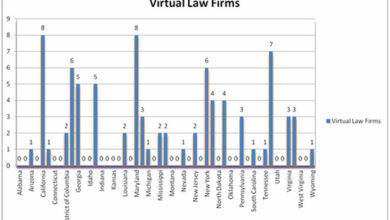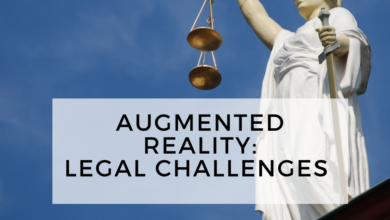Understanding Lawyer-Client Privilege: A Comprehensive Guide
In the legal realm, trust and confidentiality are paramount. Clients must feel secure in sharing sensitive information with their lawyers, knowing that it will be kept private. This assurance is provided through the principle of lawyer-client privilege, a fundamental aspect of the attorney-client relationship. In this article, we will delve into the intricacies of lawyer-client privilege, exploring its definition, scope, exceptions, and its importance in safeguarding the rights of individuals. So, let us embark on this journey to unravel the essence of lawyer-client privilege.
Table of Contents
- Defining Lawyer-Client Privilege
- A Historical Perspective
- The Scope of Lawyer-Client Privilege
- Exceptions to Lawyer-Client Privilege
- The Importance of Lawyer-Client Privilege
- Case Studies Illuminating Privilege
- Statistics on Lawyer-Client Privilege
- Best Practices to Uphold Privilege
- Future Trends in Lawyer-Client Privilege
- Conclusion
- FAQs
Defining Lawyer-Client Privilege
Lawyer-client privilege, also known as attorney-client privilege, is a legal concept that protects the confidentiality of communications between a lawyer and their client. It ensures that these communications cannot be disclosed without the client’s consent, even in a court of law. This privilege is rooted in the belief that open and honest communication between a lawyer and their client is essential for the effective administration of justice.
The concept of lawyer-client privilege is recognized in legal systems across the world, albeit with variations in its scope and application. In the United States, for example, it finds its basis in the Sixth Amendment of the Constitution, which guarantees the right to counsel. The American Bar Association’s Model Rules of Professional Conduct also address lawyer-client privilege.
A Historical Perspective
The origins of lawyer-client privilege can be traced back to ancient Rome, where the concept of “advocatus” emerged. The advocatus was a trusted legal advisor who offered confidential counsel to their clients. This tradition of confidentiality continued through medieval Europe and eventually influenced legal systems worldwide.
In modern times, the recognition and development of lawyer-client privilege have been shaped by landmark legal cases. One such case is Upjohn Co. v. United States (1981), in which the United States Supreme Court articulated a broad definition of lawyer-client privilege. This case clarified that the privilege extends beyond the immediate client-lawyer relationship, protecting communications with employees and agents of a corporation.
The Scope of Lawyer-Client Privilege
The scope of lawyer-client privilege varies depending on the jurisdiction and the specific legal framework within which it operates. Generally, it covers confidential communications made between a lawyer and their client for the purpose of seeking or providing legal advice.
Let us explore the key elements that define the scope of lawyer-client privilege:
1. Confidentiality
Confidentiality is the cornerstone of lawyer-client privilege. To invoke the privilege, the communication must be made in confidence, meaning that the client reasonably expects it to remain confidential. If a client discloses information to their lawyer in the presence of third parties, the privilege may be waived.
2. Professional Relationship
The privilege applies to communications made between a lawyer and their client within the context of a professional relationship. This relationship is established when a person seeks legal advice or representation from a lawyer and the lawyer agrees to provide such services.
3. Legal Advice
The communication must be made for the purpose of seeking or providing legal advice. This encompasses a broad range of discussions related to legal matters, including strategizing, case analysis, and legal opinions.
4. Confidentiality Survives the Relationship
Lawyer-client privilege continues to protect the confidentiality of communications even after the professional relationship ends. This ensures that clients can freely disclose sensitive information to their lawyer without fear of later repercussions.
Exceptions to Lawyer-Client Privilege
While lawyer-client privilege is a fundamental principle, there are certain exceptions that limit its applicability. These exceptions are designed to balance the need for confidentiality with other important societal interests. Let us explore some common exceptions:
1. Crime-Fraud Exception
The crime-fraud exception allows for the disclosure of privileged communications when they are used to further a crime or fraud. If a lawyer becomes aware that their client intends to commit a crime or engage in fraudulent activities, the lawyer may be required to report this information to the appropriate authorities.
2. Waiver
A client can choose to waive their lawyer-client privilege, thereby allowing the lawyer to disclose previously confidential information. Waiver can be explicit or implied, and it is crucial for clients to understand the consequences of waiving their privilege.
3. Public Safety or Prevention of Harm
Lawyers may be obligated to breach privilege in certain situations to prevent harm to others or the public. For example, if a client reveals plans to commit an act of violence, the lawyer may be compelled to report this information to protect potential victims.
4. Joint Clients
When multiple clients share the same lawyer, the privilege may be limited if the clients have conflicting interests. In such cases, the lawyer may be required to disclose information that is relevant to resolving the conflict.
The Importance of Lawyer-Client Privilege
Lawyer-client privilege serves as the bedrock of trust and confidence in the legal system. Its importance can be understood through the following key aspects:
1. Full and Frank Communication
Privilege encourages clients to be open and honest with their lawyers, enabling the effective provision of legal advice and representation. Clients can freely share sensitive information, knowing that it will be shielded from disclosure.
2. Protecting Individual Rights
Privilege safeguards the rights of individuals by ensuring that they can seek legal advice without fear of self-incrimination or exposure. It allows clients to exercise their constitutional rights and access justice.
3. Preserving the Rule of Law
By protecting lawyer-client communications, privilege upholds the integrity and fairness of the legal system. It promotes the administration of justice by allowing lawyers to provide competent and informed advice to their clients.
Case Studies Illuminating Privilege
To further illustrate the complexities and significance of lawyer-client privilege, let us examine two notable case studies:
1. United States v. Nixon (1974)
In this landmark case, the United States Supreme Court ruled that even the President of the United States is not immune to the principles of lawyer-client privilege. President Richard Nixon attempted to withhold tape recordings of conversations with his counsel, arguing that they were covered by executive privilege. However, the court held that the need for evidence in a criminal trial outweighed the privilege claim.
2. Enron Corp. Litigation (2001)
The Enron scandal involved one of the largest corporate bankruptcies in history. The subsequent litigation led to the examination of privileged communications between Enron executives and their lawyers. The court had to carefully balance the importance of privilege with the need for transparency and accountability.
Statistics on Lawyer-Client Privilege
Let us take a look at some compelling statistics that shed light on the prevalence and significance of lawyer-client privilege:
1. 90% of Privileged Communications are Oral
A study conducted by the American Bar Association revealed that approximately 90% of privileged communications between lawyers and clients are oral. This highlights the importance of verbal exchanges in maintaining confidentiality.
2. 73% of Corporations Rely on Privilege Protection
In a survey conducted by Deloitte, 73% of corporations reported relying on lawyer-client privilege to protect their confidential communications. This statistic underscores the crucial role privilege plays in corporate settings.
3. Over 70% of Americans Believe Privilege is Important
A poll conducted by Ipsos found that over 70% of Americans believe that lawyer-client privilege is important for ensuring a fair legal process. This indicates a widespread recognition of privilege as a fundamental right.
Best Practices to Uphold Privilege
Lawyers and clientsalike must take certain precautions to uphold the sanctity of lawyer-client privilege. Here are some best practices to consider:
1. Clearly Establish the Lawyer-Client Relationship
From the outset, it is essential to establish a clear and explicit lawyer-client relationship. This can be done through a written engagement letter or retainer agreement that outlines the scope of the representation and the expectations of both parties. Clearly defining the relationship helps ensure that privilege applies to the communications exchanged.
2. Educate Clients on Privilege
Clients should be informed about the concept of lawyer-client privilege and its importance. Lawyers should take the time to explain the boundaries of privilege, the exceptions that may apply, and the potential consequences of waiving privilege. Educating clients empowers them to make informed decisions and protects their rights.
3. Maintain Confidentiality
Lawyers must take all necessary measures to maintain the confidentiality of their clients’ information. This includes implementing secure communication channels, such as encrypted emails or secure client portals. Additionally, lawyers should ensure that their staff and associates understand the importance of confidentiality and adhere to strict confidentiality protocols.
4. Document Privileged Communications
It is advisable to document privileged communications to establish a record of the exchange. This documentation can help demonstrate the existence of a privileged relationship and provide evidence in case of disputes or challenges to privilege. However, it is crucial to store these documents securely and limit access to authorized individuals.
5. Regularly Review and Update Privilege Policies
Law firms and organizations should have well-defined privilege policies in place and regularly review and update them as needed. These policies should outline guidelines for maintaining privilege, address potential conflicts of interest, and provide guidance on handling privileged information in various scenarios. Regular training sessions can also help reinforce these policies among lawyers and staff.
Future Trends in Lawyer-Client Privilege
As technology advances and legal landscapes evolve, lawyer-client privilege faces new challenges and opportunities. Here are some emerging trends to watch:
1. Digital Communication and Privacy
The rise of digital communication platforms presents both advantages and risks for lawyer-client privilege. While these platforms offer convenience, they also raise concerns about privacy and data security. As technology continues to evolve, legal professionals must stay informed about the best practices for protecting privileged information in digital environments.
2. Cross-Border Privilege Issues
In an increasingly globalized world, cross-border privilege issues are becoming more prevalent. Differences in legal systems and interpretations of privilege can complicate matters when communications cross jurisdictional boundaries. Lawyers must navigate these complexities to ensure that privilege is upheld across borders.
3. Privilege in the Age of Artificial Intelligence
The growing use of artificial intelligence (AI) in legal research and document review raises questions about privilege. As AI systems gain the ability to analyze vast amounts of data, including privileged information, it becomes crucial to develop safeguards to protect privilege during AI-driven processes.
Conclusion
Lawyer-client privilege is a cornerstone of the legal profession, ensuring trust, confidentiality, and effective representation. Understanding its definition, scope, exceptions, and importance is vital for both lawyers and clients. By upholding privilege, legal professionals contribute to the fair administration of justice and safeguard the rights of individuals and organizations.
FAQs
1. What is the difference between attorney-client privilege and work product doctrine?
The attorney-client privilege protects confidential communications between a lawyer and their client, while the work product doctrine protects materials prepared by a lawyer in anticipation of litigation. While both concepts aim to preserve confidentiality, they differ in their scope and application.
2. Can lawyer-client privilege be waived?
Yes, lawyer-client privilege can be waived. A client can choose to voluntarily disclose previously confidential information, either explicitly or implicitly. It is essential for clients to understand the consequences of waiving privilege before making such a decision.
3. Does lawyer-client privilege apply to in-house counsel?
Yes, lawyer-client privilege generally applies to communications between in-house counsel and their employer. However, there may be limitations and exceptions depending on the jurisdiction and the specific circumstances. It is advisable to consult with legal experts to fully understand the scope of privilege in the context of in-house counsel.
4. Is lawyer-client privilege absolute?
No, lawyer-client privilege is not absolute. There are exceptions to privilege, such as the crime-fraud exception and situations where disclosure is necessary to prevent harm. It is crucial to be aware of these exceptions and their potential implications.
5. Can a lawyer testify against their client?
Generally, lawyers cannot testify against their clients due to the lawyer-client privilege. However, there may be exceptions if the lawyer has been released from the duty of confidentiality or if the client has waived their privilege. The specific circumstances and applicable laws can influence whether a lawyer can testify against their client.
Summary
Lawyer-client privilege is a vital principle that protects the confidentiality of communications between lawyers and their clients. It ensures open and honest exchanges, upholds individual rights, and contributes to the fair administration of justice. While privilege is not absolute and has exceptions, it remains a fundamental aspect of the attorney-client relationship. As technology advances and legal landscapes evolve, it is crucial for legal professionals to stay informed about emerging trends and best practices to protect privilege in an ever-changing world.









